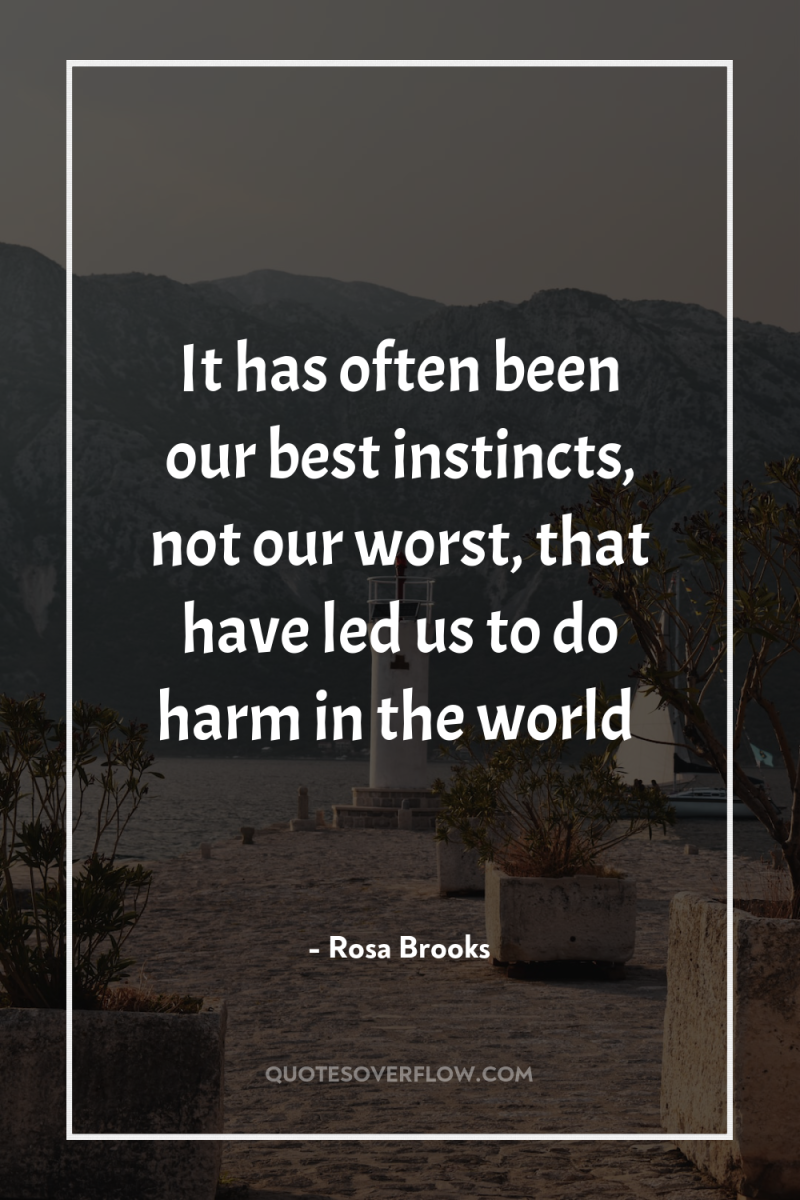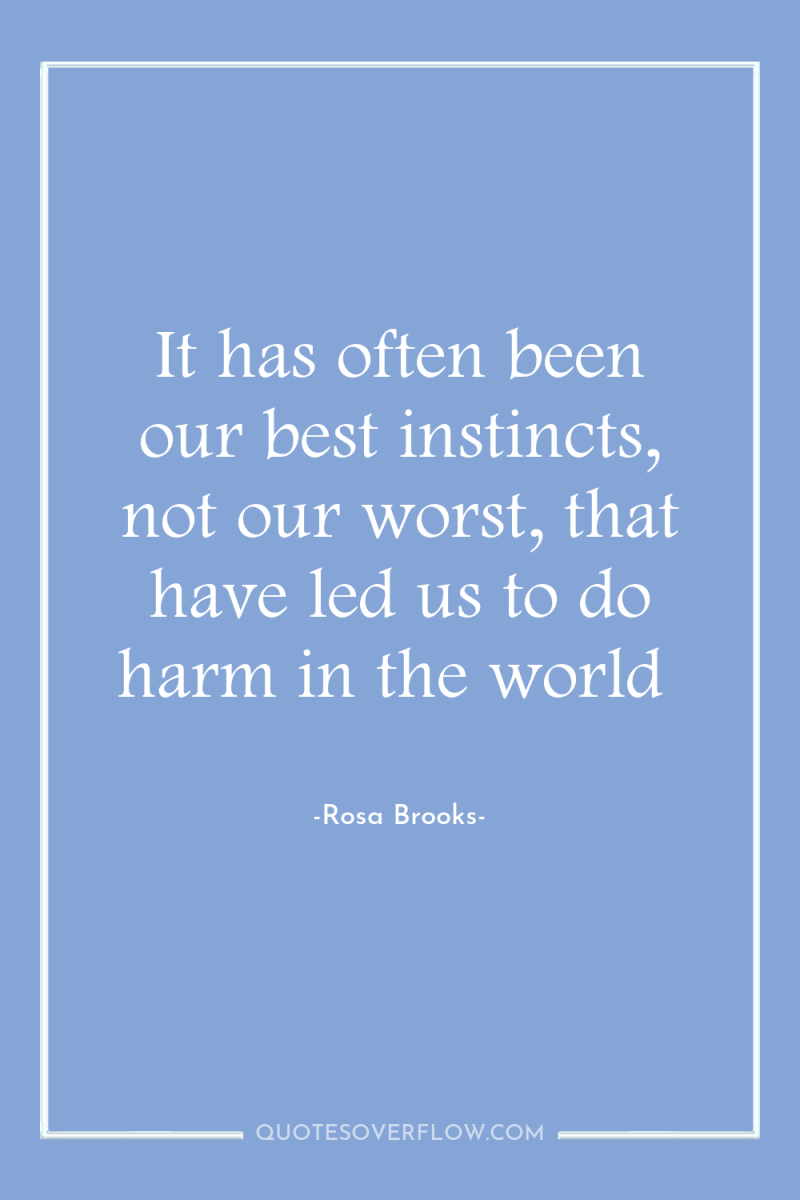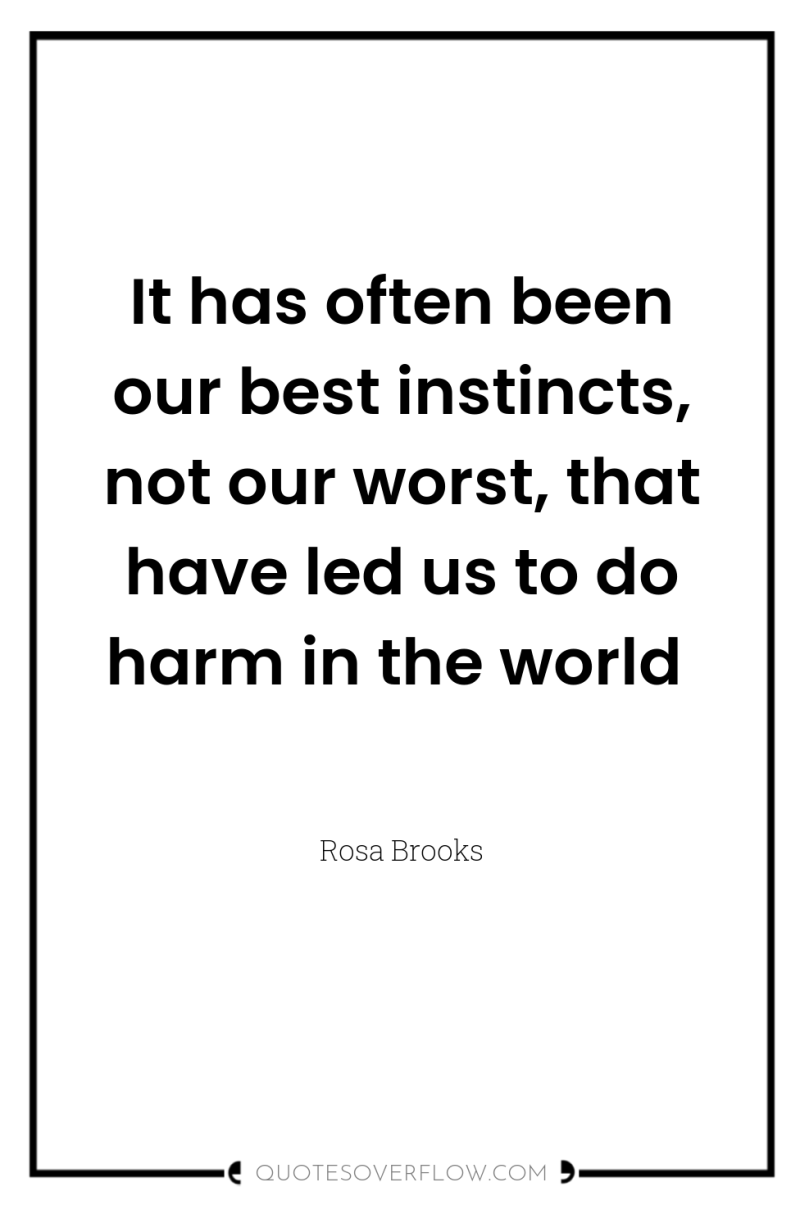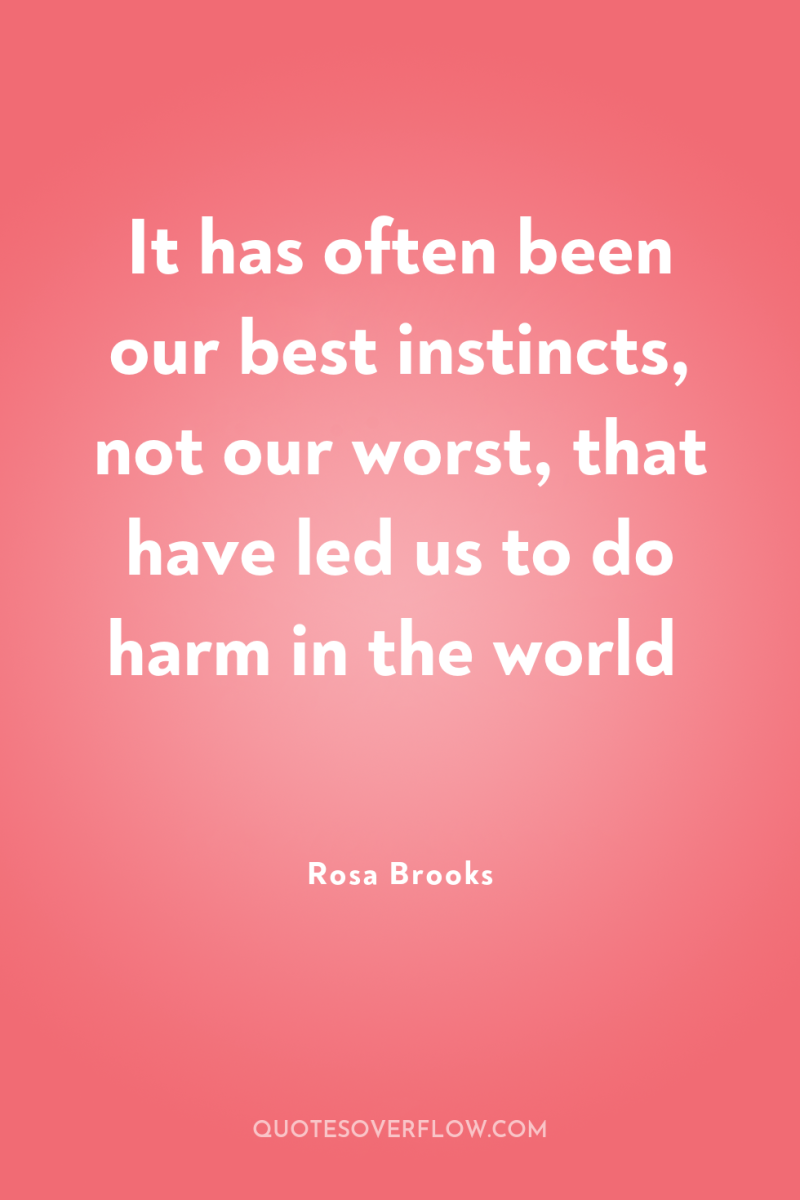Rosa BrooksIt has often been our best instincts, not our worst, that have led us to do harm in the world




About This Quote
In a 2007 speech, Archbishop Desmond Tutu said, "It has often been our best instincts, not our worst, that have led us to do harm in the world." In other words, it's not our worst impulses that lead us into negative action. It's our best instincts that may cause us to do what we shouldn't.
Source: How Everything Became War And The Military Became Everything: Tales From The Pentagon
Some Similar Quotes
- There was a clatter as the basilisk fangs cascaded out of Hermione's arms. Running at Ron, she flung them around his neck and kissed him full on the mouth. Ron threw away the fangs and broomstick he was holding and responded with such enthusiasm that...
- They're in love. Fuck the war.
- If I have learned anything in this long life of mine, it is this: in love we find out who we want to be; in war we find out who we are.
- And when all the wars are over, a butterfly will still be beautiful.
- The words ‘I Love You’ kill, and resurrect millions, in less than a second.
More Quotes By Rosa Brooks
- ...And unpredictability can spread: one powerful outlier can pave the way for others, and as more states joint the outlier, the foundations of the rule of law begin to crumble. U S counterterrorism practices--and the legal theories that under-pin them--are undermining the international rule of...
- It has often been our best instincts, not our worst, that have led us to do harm in the world
- What line separates the lawful wartime targeting of an enemy combatant from the extrajudicial murder of a man suspected, but not convicted, of wrongdoing? (p8)
- I don't believe that humans can be reduced to homo economicus, but as a group, government officials are remarkably sensitive to financial, political, and reputational costs. Thus, when new technologies appear to reduce the costs of using lethal force, their threshold for deciding to use...
- We prefer to imagine brutal wars and atrocities as events that "just happen" every now and then, much like tornadoes or lightning strikes; this metaphor suggests that we can't generalize from them, since they are radically discontinuous with ordinary life. But wars and atrocities do...